
In a prospective study comparing PSMA PET/CT and mpMRI for biopsy- and imaging-naïve men with suspected prostate cancer (PCa), PSMA PET/CT led to altered management in 34 percent of confirmed cases of PCa.

In a prospective study comparing PSMA PET/CT and mpMRI for biopsy- and imaging-naïve men with suspected prostate cancer (PCa), PSMA PET/CT led to altered management in 34 percent of confirmed cases of PCa.

There are no modifications to the order when it comes to CMS and insurance company criteria for reimbursement.

Catch up on the top radiology content of the past week.

In a recent interview, Hari Kishan Gonuguntla, M.D., discussed AI-powered evaluation of chest X-rays with the Lung Nodule Malignancy Score software and key findings from multinational prospective research presented at the recent ESMO Congress 2025 meeting.
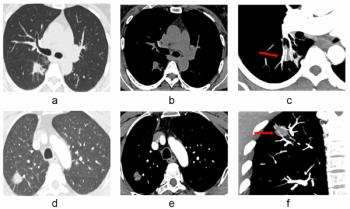
New research shows that incorporating the CT vascular sign into assessments of pulmonary nodules led to significant increases in specificity and accuracy as well as reduced false positive rates for differentiating between malignant and benign solid pulmonary nodules.

In the second part of a recent interview on new molecular imaging guidelines for renal masses, Steven Rowe, M.D., discussed the off-label utility of the mitochondrial imaging agent 99mTc-sestamibi and the potential role of AI in advanced imaging for indeterminate renal masses.
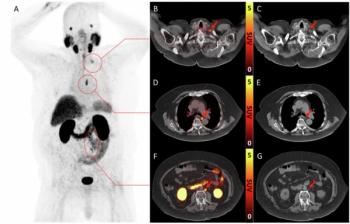
In a new review from the European Society of Urogenital Radiology (ESUR), researchers discuss the merits and limitations of PSMA PET/CT and whole-body MRI (WB-MRI) for patients with advanced prostate cancer.
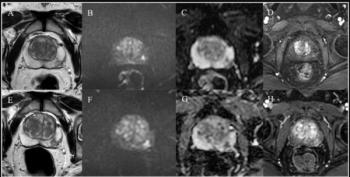
Researchers found no statistically significant differences between bpMRI and mpMRI evaluations of patients with PI-RADS 3 presentations, according to a new multi-reader study.

The Harrison.ai Open Platform reportedly emphasizes open architecture, customer ROI and elimination of costly AI platform fees.
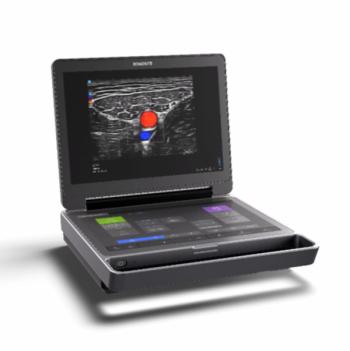
The Sonosite MT ultrasound device reportedly combines portability and enhanced high-resolution images with multiple features to promote workflow efficiency.
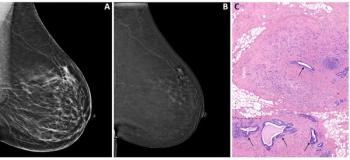
Contrast-enhanced mammography demonstrated a 95 percent specificity rate and 83.5 percent positive predictive value for ascertaining pathologic nipple involvement, according to a new multicenter study.

In a recent interview, Steven Rowe, M.D., discussed pertinent insights from recently published molecular imaging guidelines for renal masses and the potential of 89Zr-girentuximab for clear cell renal cell carcinoma (ccRCC).
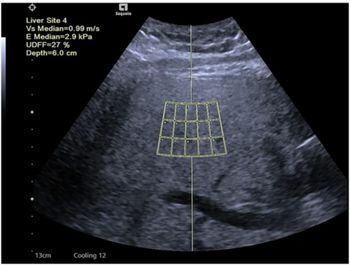
Ultrasound-derived fat fraction assessment offered higher AUCs for differentiating mild, moderate and severe hepatic steatosis in comparison to established noninvasive measures of metabolic dysfunction-associated steatosis liver disease (MASLD), according to new multicenter research.

Already in use in multiple countries, the Pulsenmore ES ultrasound platform reportedly enables expectant mothers to transmit ultrasound video clips through a smartphone app for remote interpretation.

One can rail about the forces that resulted in an undesirable status quo direction or take a more active role in grabbing the steering wheel.

Catch up on the top radiology content of the past week.
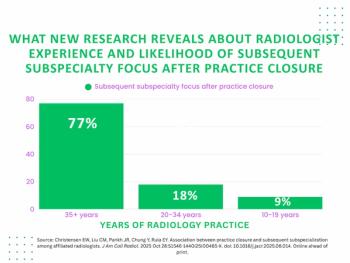
Radiologists from closed practices were 10 percent more likely to practice as subspecialists the following year, according to a newly published analysis.
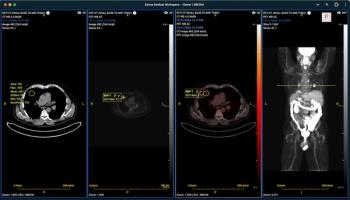
Expanded capabilities for the Sirona Advanced Imaging Suite reportedly include quantitative SUV analysis and multiplanar reconstruction for PET/CT imaging.
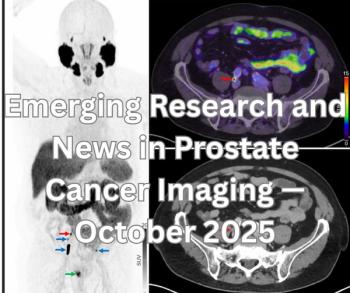
Catch up on the most-well viewed prostate cancer imaging content in October 2025.
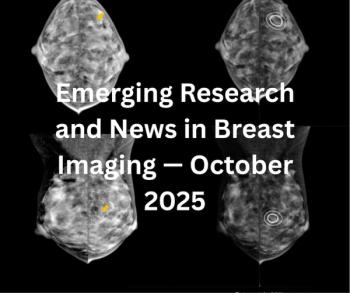
Catch up on the most well-viewed breast imaging content in October 2025.
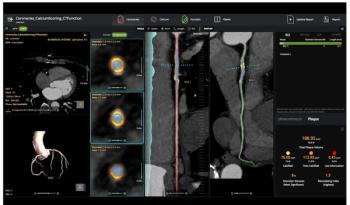
The AI-powered cvi42 | Plaque software enables adjunctive on-site interpretation of coronary CT angiography (CCTA) scans for plaque quantification.

Catch up on the most-well viewed radiology content in October 2025.
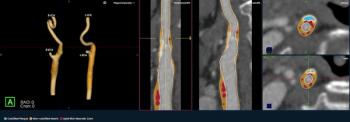
The newly launched PlaqueIQ™ image analysis modality is reportedly the first CT-based software indicated for the quantification and classification of plaque morphology in the carotid arteries.
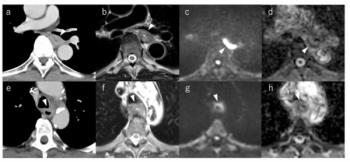
For patients with esophageal cancer, preoperative MRI demonstrated an average AUC above 94 percent for detecting tracheal invasion in contrast to an AUC range between 52.9 and 70.6 percent for CT, according to a recently published study.

The Paradise Ultrasound Renal Denervation System has demonstrated efficacy and a favorable safety profile in randomized controlled trials for the treatment of mild, moderate and resistant hypertension.
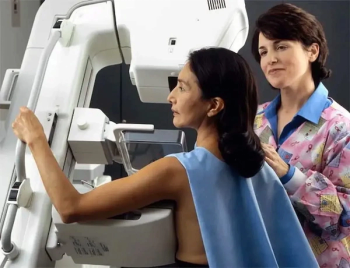
In a retrospective analysis of triennial screening mammograms for 134,217 women, a deep learning model offered comparable assessment of interval breast cancer risk across differences in age and breast density.

The AI-enabled e-Lung software may lead to significantly improved and earlier detection of progressive pulmonary fibrosis, even in patients deemed clinically stable, according to new research recently presented at the American College of Chest Physicians (CHEST) conference.

While teleradiologists with flexible schedules may be the target of jealousy and vitriol on social media, the opportunities for improved work-life balance and increased flexibility are welcomed by others.
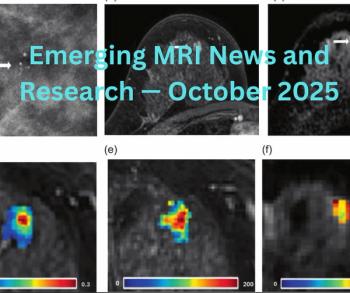
Catch up on the most-well viewed MRI content in October 2025.

Offering real-time, high-resolution ultrasound imaging for a range of procedures, the zero-capex Intracardiac Imaging System reportedly facilitates workflow efficiencies and reduced costs.